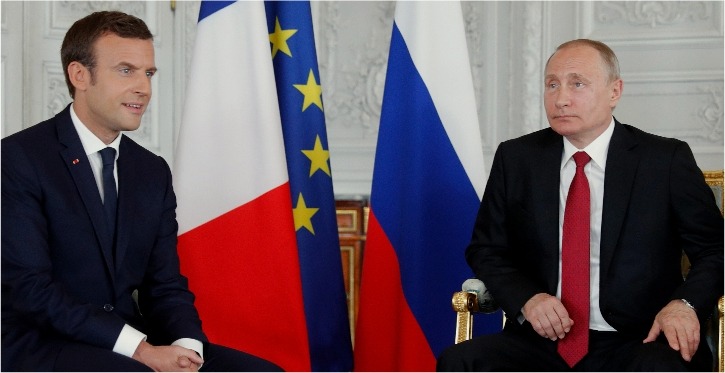
Russian officials have criticized French President Emmanuel Macron’s remarks suggesting that Russia is becoming subservient to China. Macron expressed concerns about Russia’s isolation after its invasion of Ukraine and highlighted the deepening ties between Moscow and Beijing. The Kremlin, however, dismissed Macron’s comments, emphasizing that their relationship with China is based on strategic partnership rather than dependence.
Macron made these remarks during an interview with the Paris daily l’Opinion, where he drew attention to Russia’s loss of access to the Baltic region due to its actions in Ukraine and its growing alliance with China. He noted that the current level of cooperation between Russia and China would have been unimaginable just two years ago.
The focus of the criticism was on the meeting between Russian President Vladimir Putin and Chinese President Xi Jinping in Moscow. During the meeting, they declared the deepening of their strategic partnership and heralded a new era in their relationship.
In response, Kremlin spokesperson Dmitry Peskov defended Russia’s relations with China, asserting that they are founded on mutual strategic partnership rather than a form of dependence. Russian Deputy Foreign Minister Alexander Grushko accused Western countries, including France, of harboring fears about a more multilateral international system that encompasses strong and independent centers such as Russia and China. Grushko argued that the West needs to acknowledge and accept the reality of robust and mutually respectful relations between Moscow and Beijing.
The Russian officials’ response suggests that they interpret Macron’s comments as reflecting Western concerns about the evolving global order and the growing partnership between Russia and China. They maintain that this changing landscape of international relations encompasses multiple centers of power and calls for acceptance rather than criticism.
The disagreement between Russia and France underscores the intricate dynamics shaping global geopolitics and the shifting alliances among major powers. The comments and reactions from both sides highlight the ongoing tensions and rivalries between Western countries and Russia, as well as the deepening relationship between Russia and China, which is perceived as a significant development on the international stage.
The exchange between Russia and France exemplifies the complex nature of global geopolitics and the fluid alliances among major powers. It reflects the ongoing tensions between Western countries and Russia, while also highlighting the increasingly significant relationship between Russia and China.
The deepening ties between Moscow and Beijing have implications for the global order, as Western countries navigate a changing landscape of international relations. The rise of a more multilateral system that includes strong and independent centers like Russia and China challenges the traditional power dynamics and influence of Western nations.
This growing partnership between Russia and China has broader geopolitical implications. It has led to increased collaboration in various areas, including trade, energy, and defense. Both countries have aligned their interests to counterbalance Western influence and assert themselves on the global stage.
The Russian officials’ response indicates a desire to assert Russia’s autonomy and challenge the perception of subservience to China. By emphasizing the strategic partnership between Moscow and Beijing, they aim to demonstrate that Russia maintains its own agency and plays a crucial role in shaping international affairs.
As the world continues to grapple with evolving power dynamics, it remains to be seen how Western countries will respond to the deepening ties between Russia and China. The complex interplay between global powers and their shifting alliances underscores the need for strategic diplomacy and engagement to maintain stability and address the challenges of an increasingly multipolar world.
The comments by Macron and the subsequent reactions from Russian officials criticized and serve as a reminder of the intricate web of relationships and interests that define international politics. As geopolitical dynamics continue to evolve, it is essential for countries to engage in constructive dialogue and find common ground to navigate the complexities of a rapidly changing global order.
